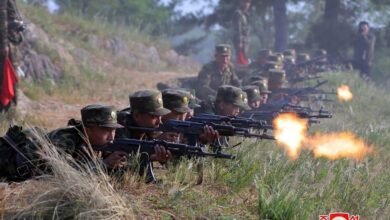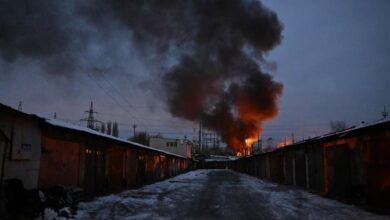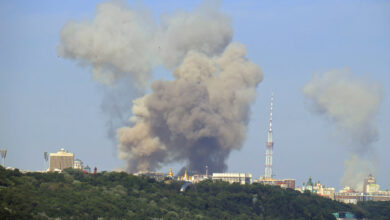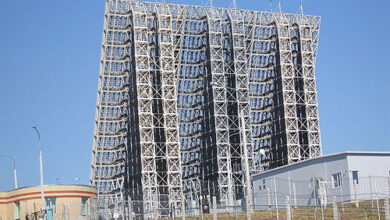NATO on Thursday said it was ramping up patrols in the Baltic Sea after damage to underwater infrastructure between alliance members in the area.
“The increased measures include additional surveillance and reconnaissance flights, including with maritime patrol aircraft, NATO AWACS planes, and drones,” the military alliance said in a statement.
“A fleet of four NATO minehunters is also being dispatched to the area.”
The move comes after a natural gas pipeline between Finland and Estonia and a telecommunications cable between Sweden and Estonia were damaged.
“We continue to monitor the situation closely, and we remain in close contact with our Allies Estonia and Finland, and our partner Sweden,” said NATO spokesman Dylan White.
“NATO will continue to adapt its maritime posture in the Baltic Sea and will take all necessary steps to keep allies safe.”
Finland last week said a leak at the Balticconnector pipeline was caused by “external” activity, prompting fears of possible sabotage amid heightened tensions with Russia.
Finnish police said Thursday they had concluded dives to probe the leak, but they remain tight-lipped on the outcome of their investigation.
NATO chief Jens Stoltenberg said the military alliance would offer a “determined response” if it was shown the incident was a deliberate attack.
Sweden on Tuesday said it had discovered a telecommunications cable under the Baltic Sea had also suffered damage at the same time but insisted it was too early to explain what had caused it.
The latest incident comes more than a year after explosions on the Nord Stream pipelines cut off a major route for Russian gas to Europe and fuelled geopolitical tensions already running high over Moscow’s invasion of Ukraine.
Officials declared the blasts were “sabotage,” but there has still been no definitive answers on who or what was responsible.
Finland this year joined the US-led military alliance in a major strategic shift that angered Russia, and Sweden is currently pushing for membership.
Since the Nord Stream incident, NATO says it has already increased patrols near “critical undersea infrastructure” and has pushed to improve coordination between allies.












